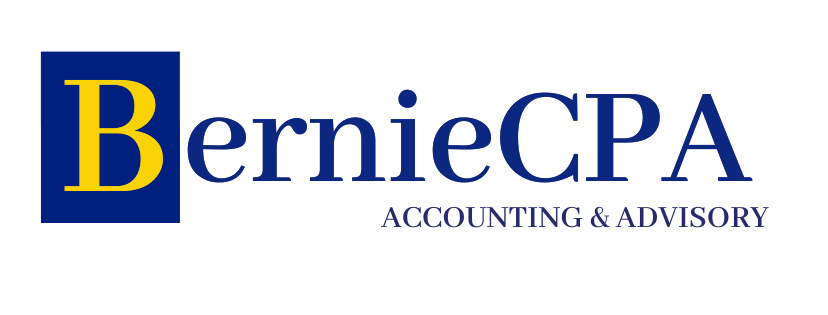Navigating the Complexities: Understanding How Sole Member LLCs Fill Out Beneficial Ownership Forms
A Sole Member LLC, or Single-Member Limited Liability Company, is a business structure that combines the limited liability protection of a corporation with the pass-through taxation of a sole proprietorship. This means that the owner of the LLC, known as the sole member, is not personally liable for the debts and obligations of the business. Instead, the LLC itself is responsible for any legal or financial issues that may arise. This structure is popular among small business owners and entrepreneurs who want to protect their personal assets while maintaining flexibility and control over their business operations.
Sole Member LLCs are relatively easy to set up and maintain, making them an attractive option for many individuals looking to start their own business. In most states, the process of forming a Sole Member LLC involves filing articles of organization with the state and paying a filing fee. Once the LLC is established, the sole member has the authority to make all decisions regarding the business and its operations. This level of control can be appealing to entrepreneurs who want to maintain autonomy and make decisions without having to consult with partners or shareholders.
The Importance of Beneficial Ownership Forms
Beneficial ownership forms are legal documents that provide information about the individuals who ultimately own or control a business entity. These forms are used to identify the true owners of a company and are an important tool in preventing money laundering, tax evasion, and other illicit activities. In recent years, there has been a global push for greater transparency in corporate ownership, leading to increased scrutiny and regulation of beneficial ownership reporting requirements.
For businesses operating as Sole Member LLCs, accurate and up-to-date beneficial ownership forms are crucial for demonstrating compliance with legal and regulatory obligations. These forms help to establish the identity of the sole member and provide transparency about their ownership stake in the company. By accurately completing and maintaining beneficial ownership forms, Sole Member LLCs can demonstrate their commitment to ethical business practices and avoid potential legal and financial consequences.
Understanding the Complexities of Beneficial Ownership Forms for Sole Member LLCs
While beneficial ownership forms are an important tool for promoting transparency and accountability in business ownership, they can also be complex and challenging to navigate, especially for Sole Member LLCs. The unique structure of a Sole Member LLC, where there is only one owner who has complete control over the business, can present specific challenges when it comes to completing beneficial ownership forms.
One of the key complexities for Sole Member LLCs is accurately identifying and documenting the sole member’s ownership interest in the company. Unlike multi-member LLCs, where ownership is divided among multiple individuals or entities, Sole Member LLCs have a single owner who holds 100% of the ownership interest. This can make it more difficult to demonstrate beneficial ownership in a clear and transparent manner, as there are no other owners or stakeholders to consider.
In addition, Sole Member LLCs may face challenges in providing sufficient information about the sole member’s identity and background, as well as any relevant financial interests or relationships that could impact their ownership of the company. Navigating these complexities requires a thorough understanding of beneficial ownership reporting requirements and a careful approach to gathering and documenting the necessary information.
Navigating the Requirements for Beneficial Ownership Forms
Navigating the requirements for beneficial ownership forms can be a daunting task for Sole Member LLCs, as there are specific legal and regulatory obligations that must be met in order to comply with reporting requirements. In the United States, for example, the Financial Crimes Enforcement Network (FinCEN) requires certain businesses, including Sole Member LLCs, to file a beneficial ownership form known as FinCEN Form 114 (formerly known as Form TD F 90-22.1), also known as the Report of Foreign Bank and Financial Accounts (FBAR). This form is used to report foreign financial accounts held by U.S. persons or businesses and is an important tool in combating tax evasion and other financial crimes.
In addition to federal reporting requirements, Sole Member LLCs may also be subject to state-level beneficial ownership reporting obligations, depending on the jurisdiction in which they operate. For example, some states require businesses to file annual reports that include information about their beneficial owners, while others have specific disclosure requirements related to ownership interests and control of the company.
Navigating these requirements can be challenging for Sole Member LLCs, especially those that are unfamiliar with legal and regulatory compliance obligations. Failing to meet reporting requirements can result in significant penalties and legal consequences, making it essential for Sole Member LLCs to carefully navigate the requirements for beneficial ownership forms.
Common Challenges in Filling Out Beneficial Ownership Forms for Sole Member LLCs
Filling out beneficial ownership forms for Sole Member LLCs can present a number of common challenges that require careful consideration and attention to detail. One of the most significant challenges is accurately identifying and documenting the sole member’s ownership interest in the company. Unlike multi-member LLCs, where ownership is divided among multiple individuals or entities, Sole Member LLCs have a single owner who holds 100% of the ownership interest. This can make it more difficult to demonstrate beneficial ownership in a clear and transparent manner, as there are no other owners or stakeholders to consider.
Another common challenge is providing sufficient information about the sole member’s identity and background, as well as any relevant financial interests or relationships that could impact their ownership of the company. This may include disclosing any foreign financial accounts held by the sole member, as well as any other business interests or affiliations that could be relevant to their ownership stake in the company.
In addition, Sole Member LLCs may face challenges related to maintaining accurate and up-to-date beneficial ownership information over time. Changes in ownership or control of the company, such as transfers of ownership interests or changes in the sole member’s personal circumstances, can impact reporting requirements and necessitate updates to beneficial ownership forms. Failing to keep this information current can result in non-compliance with legal and regulatory obligations, leading to potential penalties and legal consequences.
Best Practices for Sole Member LLCs in Completing Beneficial Ownership Forms
In order to navigate the complexities of beneficial ownership forms and address common challenges, Sole Member LLCs can benefit from implementing best practices for completing these important documents. One key best practice is to maintain accurate and up-to-date records of the sole member’s ownership interest in the company, including any changes in ownership or control that may occur over time. This can help ensure compliance with reporting requirements and demonstrate transparency about the true ownership of the business.
Another best practice is to carefully document and disclose any relevant financial interests or relationships that could impact the sole member’s ownership stake in the company. This may include providing information about foreign financial accounts held by the sole member, as well as any other business interests or affiliations that could be relevant to their ownership of the company.
Sole Member LLCs should also consider seeking professional assistance from legal and financial advisors who have experience with beneficial ownership reporting requirements. These professionals can provide valuable guidance and support in navigating complex reporting obligations, ensuring that beneficial ownership forms are completed accurately and in compliance with legal and regulatory standards.
Seeking Professional Assistance for Beneficial Ownership Forms
Given the complexities and challenges associated with completing beneficial ownership forms for Sole Member LLCs, seeking professional assistance from legal and financial advisors can be an important step in ensuring compliance with reporting requirements. These professionals can provide valuable guidance and support in navigating complex reporting obligations, helping Sole Member LLCs to accurately complete beneficial ownership forms and avoid potential penalties and legal consequences.
Legal advisors with expertise in corporate law and regulatory compliance can help Sole Member LLCs understand their reporting obligations and develop strategies for meeting these requirements in a timely and accurate manner. They can also provide guidance on maintaining accurate and up-to-date records of beneficial ownership information, as well as addressing any changes in ownership or control that may occur over time.
Financial advisors with experience in tax compliance and financial reporting can also play a valuable role in assisting Sole Member LLCs with completing beneficial ownership forms. They can help ensure that all relevant financial interests and relationships are properly documented and disclosed, as well as providing guidance on reporting requirements related to foreign financial accounts or other financial assets held by the sole member.
In conclusion, while completing beneficial ownership forms for Sole Member LLCs can present unique challenges, it is essential for these businesses to carefully navigate reporting requirements in order to demonstrate transparency about their true ownership and comply with legal and regulatory standards. By implementing best practices and seeking professional assistance when needed, Sole Member LLCs can ensure that they accurately complete beneficial ownership forms and avoid potential penalties and legal consequences.


